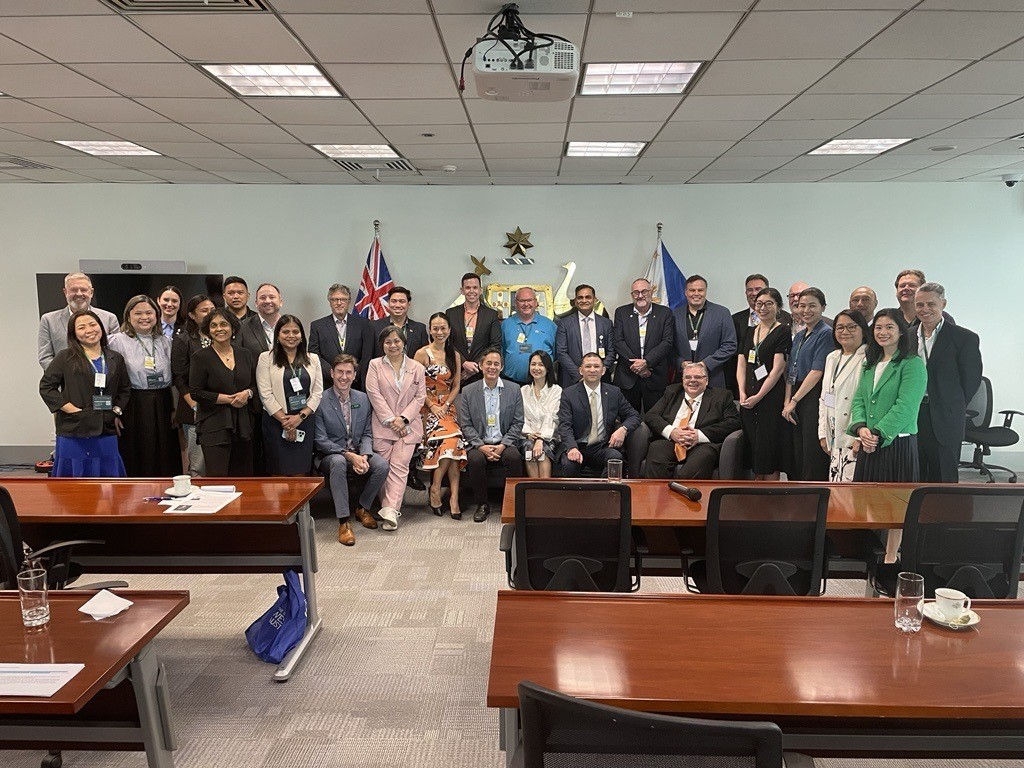Austrade's second Southeast Asia Business Exchange mission focused on transnational education.
Twenty-one Australian educational institutions have delved into transnational education (TNE) opportunities in the Philippines. The group was on a business mission led by Austrade CEO, Xavier Simonet, from 13-16 May 2024.
Universities, vocational education and training providers and the Australia Philippines Business Council made up the delegation. A state representative from Trade and Investment Queensland was also part of the delegation.
Under the Australian Government's Southeast Asia Economic Strategy to 2040, education and skills is one of 10 priority sectors for collaboration with Southeast Asia.
The business mission to the Philippines was the second under the Australia Southeast Asia Business Exchange program. The program aims to drive two-way trade and investment and collaboration between Australia and Southeast Asia.
Australia's long history of distance education
TNE refers to the delivery of education offshore through partnerships, foreign campuses, or online or hybrid delivery.
Australia is one of the pioneers of modern-day TNE, with a history of distance learning that dates back to 1911.
Prior to the COVID-19 pandemic, there were more than 116,000 international students enrolled in Australian higher education programs offshore. At the same time, 60 Australian training providers were delivering vocational programs to over 26,000 students enrolled offshore in 37 known locations.
The capacity of Australian TNE providers significantly improved throughout the pandemic as they adapted to the challenges of delivering high-quality education experiences to students enrolled offshore.

Members of the transnational education business mission to the Philippines.
Rising demand for high-quality education
Australia is already the top overseas destination for Philippine students. The expanding middle class in the Philippines is increasing demand for internationally recognised qualifications and experiences.
The Philippines is a great partner for Australian educational institutions. The country has a high level of demand for students with high-quality education who are workforce-ready. Overall, there is a rising consumer spend on education, improving employment conditions, and strong English proficiency in the Philippines. These factors create opportunities for TNE.
The business mission included:
- roundtable and panel discussions with Philippine policymakers, regulators, industry associations and partner institutions
- six site visits to Philippine educational and skills institutions, and 4 site visits to Philippine industry associations
- a successful networking reception hosted by the Australian Ambassador
- a business-matching event with 78 tailored matches for Australian delegates.
There was a high level of enthusiasm and engagement between delegations and Philippines organisations throughout the mission.
Opportunities for Australian TNE providers
Many conversations were focused on how to address educational needs in the Philippines to fill skills shortages and anticipated future workforce requirements. There were also discussions about anticipated future skills requirements in Australia.
Key Philippine industries with skills in demand include:
- information technology and business process management
- construction
- agriculture
- health
- tourism
- hospitality
- education.
Australia has strong educational expertise in these skills. Australia is working with Philippine institutions to identify programs that can meet local needs and align with anticipated workforce demands.
Australian TNE can provide a quality education to students who may not be able to complete an entire qualification abroad. This also reduces the overall cost of international education for students.
Mutually beneficial partnerships between Australian and Philippine institutions are key to success by ensuring value flows both ways.






